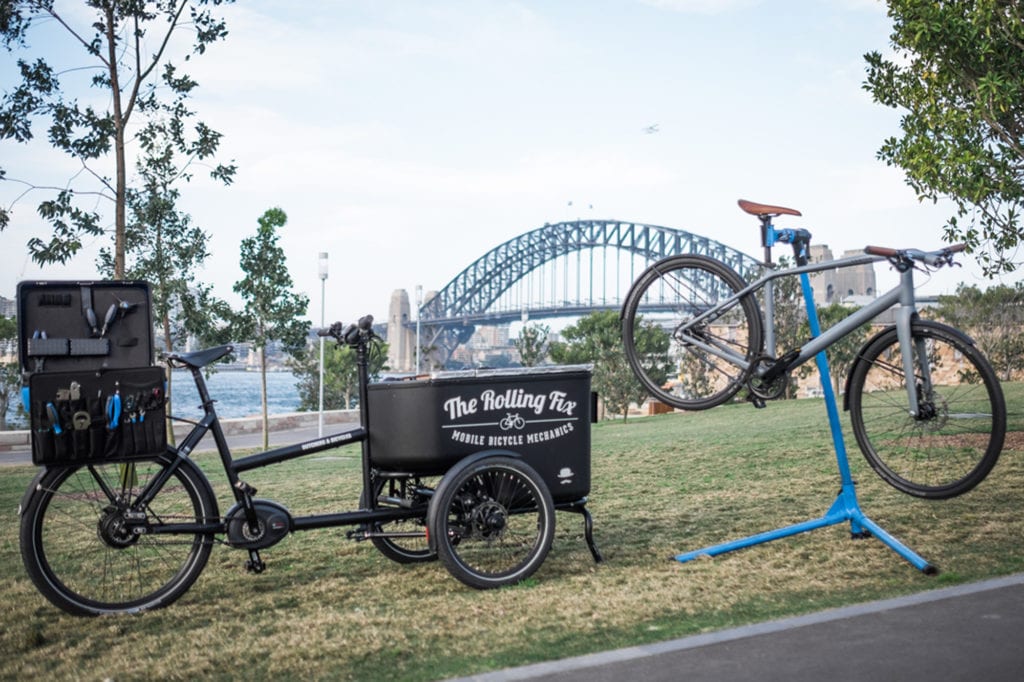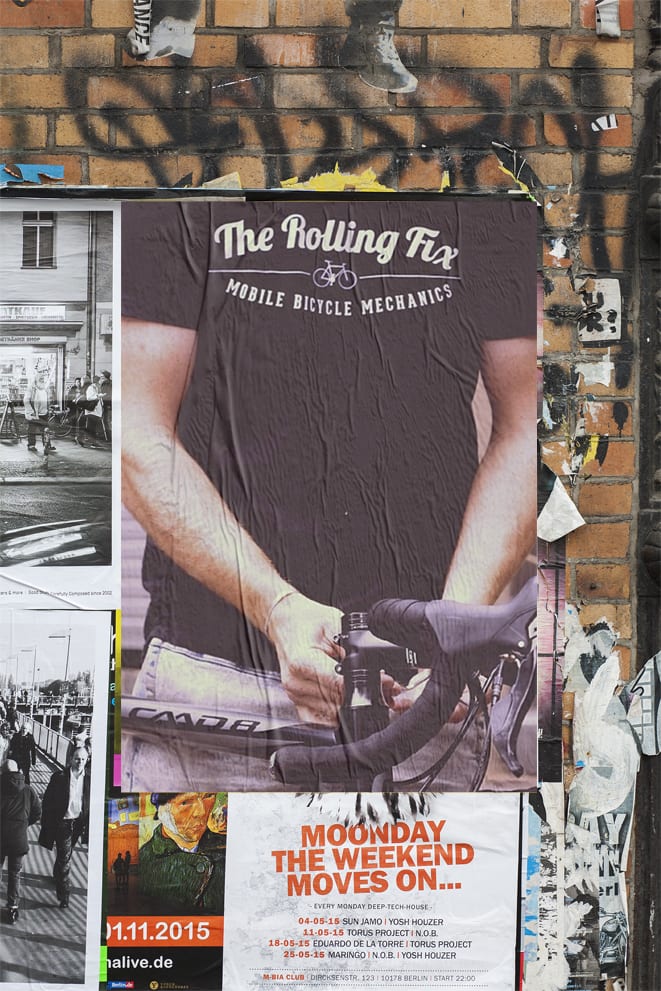Anyone who has ever suffered through the fist-shaking frustration of trying to catch a yellow taxi on a rainy night understands why Uber and other app-based ride services are so popular. By the same token, anyone who has ever spent the better part of a sunny day inside a dingy, badly lit bike shop waiting for someone to take minutes to fix your brakes can see the beauty of a mobile mechanic who comes right to your door.
It was precisely this idea that led Thomas Treloar and his then-business partner Cameron Harrison to found The Rolling Fix.
“We were frustrated with bike shops in general,” says Treloar. “The experience was subpar compared to other industries and the time it took was inconvenient. Sydney has lots of bike parking at office buildings, some with hundreds of racks. If you have all these bikes in one area, why not take [the service] to the office blocks?”
The Sydney, Australia-based mobile bike mechanic opened in 2014 and makes house—and corporate—calls, providing custom-tailored service for casual bikers, daily commuters, cyclists who compete and even entire offices. And in its four years of operation, it has serviced thousands of Sydney bikes, not just fixing broken chains, but filling a “duh, of course” need that no one had addressed before.
The Right Stuff for Every Repair
The set-up is simple. Schedule a service appointment ahead of time, or contact Rolling Fix on its website and within 24 hours, a tech shows up—toolkit in van or trike—to fix what ails your bike.

Image: The Rolling Fix
The biggest challenge to providing that convenience? Making sure the mobile repairman has everything they need to do the job onsite. The Rolling Fix’s current fleet of repair vehicles is comprised of two vans and a cargo trike, none of which offers very much room for extensive tools and spare parts.
“We don’t have the luxury of having a big shop where you can have every tool you need,” says Treloar. “With such limited space, you have to be quite specific in what you carry.”
Fortunately, strategic planning is an arena in which Treloar excels, thanks in part to his training in IT and event operation, rather than as a mechanic.“I’m [good] at field service, fixing all of the problems that are not the bike, but that involve having the right parts in the van,” he notes.
Do We Really Need to Buy That?

Image: The Rolling Fix
Treloar honed this skill primarily through trial-and-error—and by resisting the basic instinct to buy just in case.
“In the beginning, we wanted to carry as much as we could. We were very reactive. If we came across a specific part, we would not only think we needed it, but that we needed two so we’d have it in the future,” says Treloar.
This kind of thinking led them to order six sets of a brake pad in 2014 because a bike they were repairing required two—four years later, the other four are still sitting on a shelf in the warehouse. “We can’t even sell them online,” Treloar admits.
To keep from becoming bike-part hoarders, Rolling Fix now keeps careful track of what parts they use the most. “If we don’t sell [a part] for three months, we take it out of the van and put it in the warehouse where it won’t take up space,” he says.
The most popular tools they use are chains, cassettes and brake pads. And there is another too that is essential to Rolling Fix’s business: a smartphone.
“For first-time customers, we get a photo of the bike before the appointment and then we get the person on the phone,” says Treloar. “It’s not enjoyable to show up (and say), ‘We don’t have the proper brake pads and have to come back.’ We pride ourselves on having what people need.”
Racking Up Clients—One Bike at a Time
Thanks to this level of personalized customer service, Rolling Fix has won over a loyal clientele; in fact, repeat customers make up the bulk of their business. On its website, Rolling Fix reports 96 percent customer satisfaction.
Treloar takes great pains to keep in touch with his customers. Three days after a repair, he makes a followup call to ask for their feedback. Three months later, he contacts clients again to check in on the health of their bike and to see if it needs any further attention. Rolling Fix also sends scheduled text messages to let customers know when their bike is due for service.
Says Treloar, who hopes to take Rolling Fix national in the future, “It’s the same as car maintenance—if you ride a bike every day, it should be serviced. Brake pads, tightened gears, whatever is needed. Being pre-emptive means better, safer bikes are on the road, which benefits everyone.”


Share this: